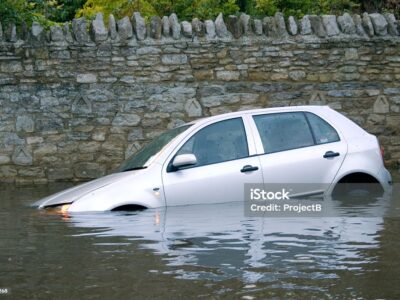Q: Do I need flood insurance and what is the importance of having it?
A: Yes, if you live in a high-risk flood zone, flood insurance is required, especially if you have a mortgage from a federally regulated or insured lender. Even outside high-risk areas, homes can still be damaged by flood. Therefore, purchasing flood insurance can help cover costs if a flood event occurs. It is valuable because homeowners insurance commonly does not cover flood damage.
Q: What does the National Flood Insurance Program (NFIP) offer?
A: NFIP, a program created by FEMA, offers flood insurance policies to homeowners, renters, and business owners if their community participates in the NFIP. This program aims to reduce impact of flooding on private and public structures by providing affordable insurance for property owners and encouraging communities to adopt and enforce floodplain management regulations.
Q: How can I purchase flood insurance?
A: Flood insurance can be purchased through a local insurance agent. The agent who handles your homeowners or renters insurance should be able to assist with the purchase of flood insurance. There is a 30-day waiting period from the time a policy is purchased until you are covered, with few exceptions.
Q: What factors determine the flood insurance premium?
A: The cost or premium of your flood insurance policy is determined by numerous factors such as: amount of coverage, deductible, risk zone, location, design and age of your property, and its elevation.
Q: What does flood insurance cover in general?
A: Generally, flood insurance covers physical damage to your property and possessions directly caused by flooding. It’s designed to cover the cost to repair or replace items up to the policy limit. Coverage is divided into two categories – building coverage and contents coverage.
Q: Can I buy flood insurance immediately before or during a flood?
A: You can purchase a policy at any time. However, there is a 30-day waiting period from the date of purchase before your policy goes into effect. This waiting period may be waived in some circumstances, such as if the insurance is required by a lender.
Q: How to make a flood insurance claim?
A: If your property has been affected by a flood, contact your agent or insurance company to file a claim. You’ll need to provide an exhaustive list of property damage. An adjuster will visit your property to assess the damage and you must sign a proof of loss statement to make the claim official.
Q: What is a Special Flood Hazard Area (SFHA)?
A: SFHAs are areas with a high risk of flooding. If you live in an SFHA, your mortgage lender typically requires you to have flood insurance as part of the insurance requirements. These areas are depicted on flood maps as zones starting with the letter “A” or “V”.
Q: What is the future of flood insurance considering climate change?
A: Climate change and more frequent extreme weather events are expected to increase future flood risk. As a result, flood insurance programs such as NFIP are studying these future risks to adjust their flood coverage options and rates accordingly.
Q: Can I cancel a flood insurance policy if I believe my property is low risk?
A: Generally, if your lender requires flood insurance as part of the loan agreement, you cannot cancel coverage. However, if you believe your property has lower flood risk, you can challenge the flood zone designation. If successful, your lender may no longer require flood insurance.

Aleksandra Kosanovic
Aleksandra, a leading Insurance Risk Analyst with a wealth of experience, specializes in evaluating and managing potential insurance risks. Her expertise lies in crafting strategies that optimize coverage while minimizing vulnerabilities. Through this platform, Aleksandra provides readers with invaluable insights, helping them make well-informed insurance choices in a dynamic market landscape.



 Understanding Flood Insurance Terms
Understanding Flood Insurance Terms